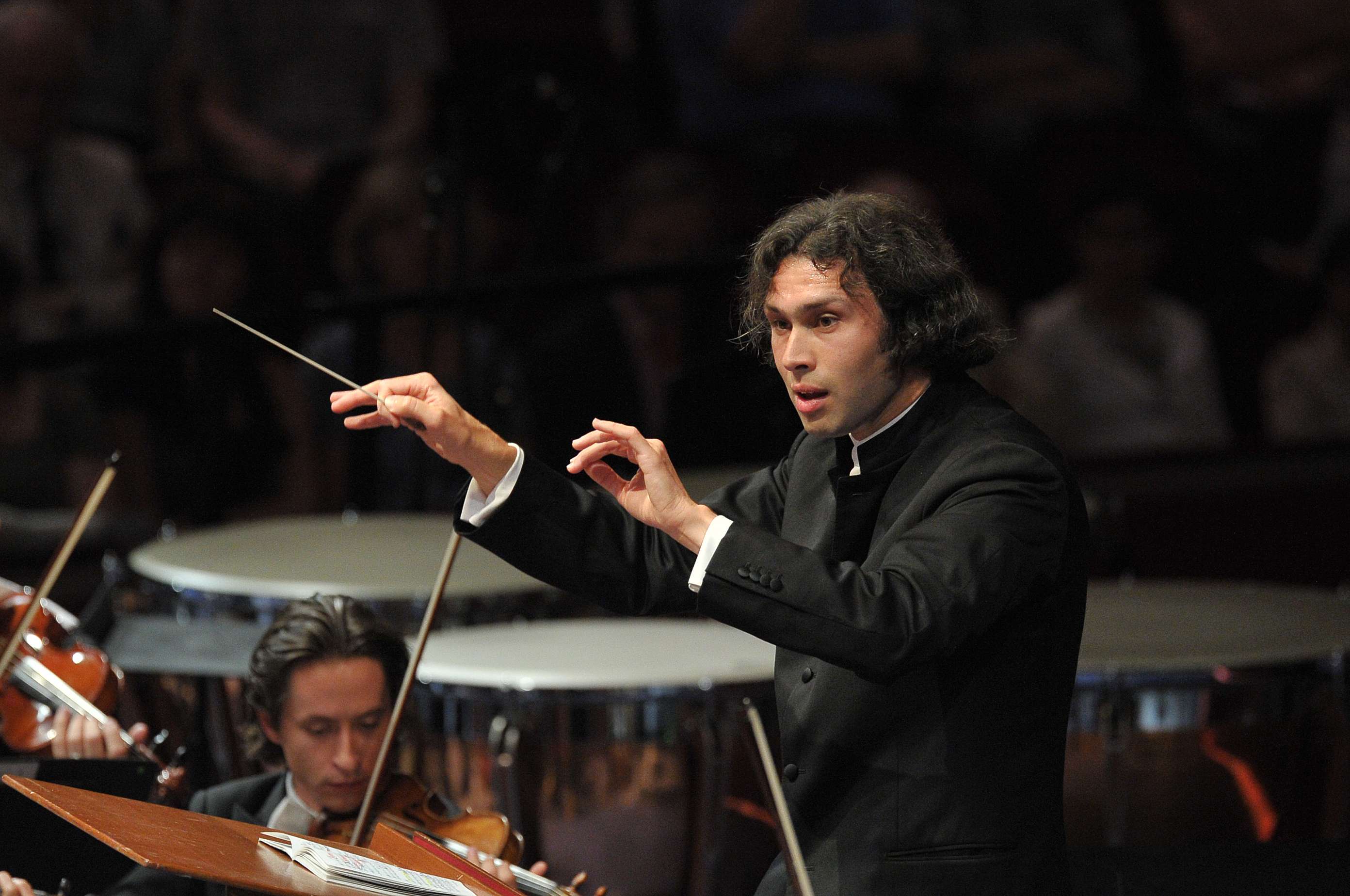|
Back
Ax, And Ye Shall Receive New York
Isaac Stern Auditorium, Carnegie Hall
12/08/2011 -
Ludwig van Beethoven: Piano Concerto Number 5 in E-flat Major, Opus 73 (“Emperor”)
Pyotr Ilyich Tchaikovsky: Manfred Symphony, Opus 58
Emanuel Ax (Piano)
London Philharmonic Orchestra, Vladimir Jurowski (Principal Conductor)

V. Jurowski (© Chris Christodolou/IMG Artists)
The second of two concerts by the London Philharmonic Orchestra (LPO) was unremarkable, only because its singularity was so expected. A great pianist played a popular work by Beethoven with efficiency and flair. One of the world’s most popular composers was on display with a rare symphony conducted by Russian conductor Vladimir Jurowski with the same excellent results.
Then again, what else could one expect of Emanuel Ax than that he performs Beethoven’s “Emperor” Concerto with imperial good taste? The problem with Mr. Ax is that he is so hair-raisingly good. Then he plays that barrage of scales and trills and mighty chords with such authority that its satisfaction is pre-ordained.
No, Mr. Ax is never boring. One of his colleagues, a violin virtuoso, is notorious for sometimes playing the warhorses brilliantly, and sometimes mechanically at time, as if to say, “The audience won’t know the difference.” Mr. Ax has never leaned on his “brand” of being distinguished and brilliant at the same time. He always gives the piano full throttle.
With Beethoven’s Fifth Concerto, he has no reason to depart from his usual performance, because it is so competent and emotional at the same time. At times, his mechanism is just too perfect–never mechanical but never with faults. Then we come to the Adagio movement, and he brings a a measured tenderness, which segues into a jaunty finale.
It was fine fresh playing, but Mr. Ax, with his usual unassuming shuffle on and off stage, had a surprise, a lovely encore of a Schubert Musical Moment, equally smooth, graceful and, yes, perfect.
As he did with Janine Jansen the night before, conductor Vladimir Jurowski accompanied rather than tried to overwhelm Mr. Ax. At any rate, that would have been a losing proposition.
Instead he took his LPO–including an organist–to surpass themselves in Tchaikovsky’s unlikely attempt to be Hector Berlioz.
Berlioz had done Lord Byron proud in Harold In Italy, and Tchaikovsky was urged to do his own Byron piece in Manfred. The Russian was reluctant at first (he admired Berlioz, but was more intrigued with Schumann’s Manfred Overture), yet he took a holiday, like the fictional Manfred, in the Alps, and started work.
A year and 56 minutes later, he had finished Manfred, which is rarely played today. On this hearing–I think it was my first live hearing–the program music was partly beautiful, nowhere near what Leonard Bernstein called “trash”, but did outlast its welcome by a few minutes.
The the idée fixe (Berlioz style) was a beautiful precursor to his later symphonies, the chorale was lovely, and the third movement, a pastoral journey, was Tchaikovsky at his most elegiac.
Even better was that Mr Jurowski obviously is a great fan of the rarely-played piece. He took the orchestra through its paces, never exaggerating or letting down the guard even in some of the filling. (The extended first movement seems to have a lot of time-filling moments).
At the end, one was not convinced that the Manfred can compare to the last symphonies, and indeed, with its “program”, one kept thinking of Swan Lake rather than Lord Byron. But Mr. Jurowski always knows what he is doing. His concert in New Jersey tonight should give our country cousins a treat.
Harry Rolnick
|